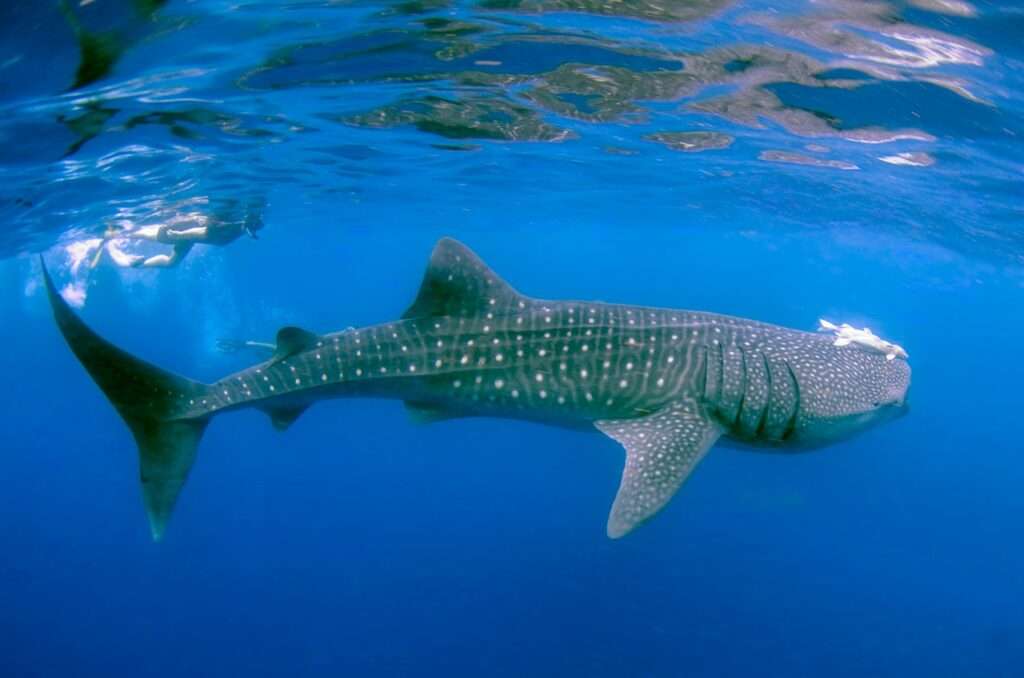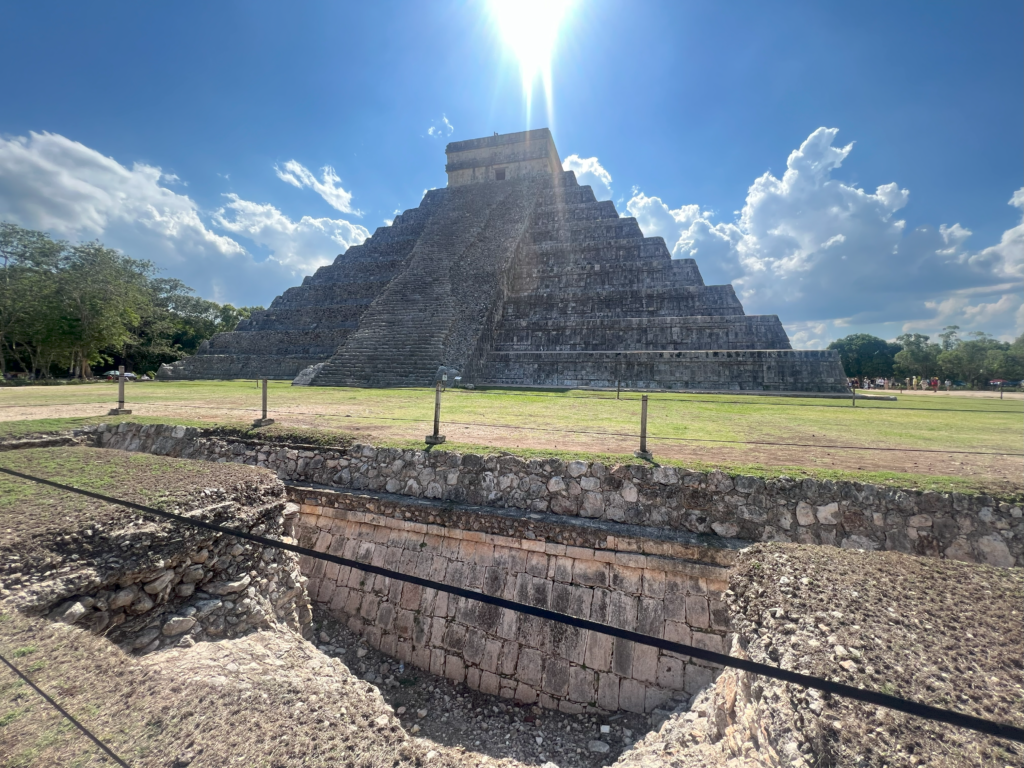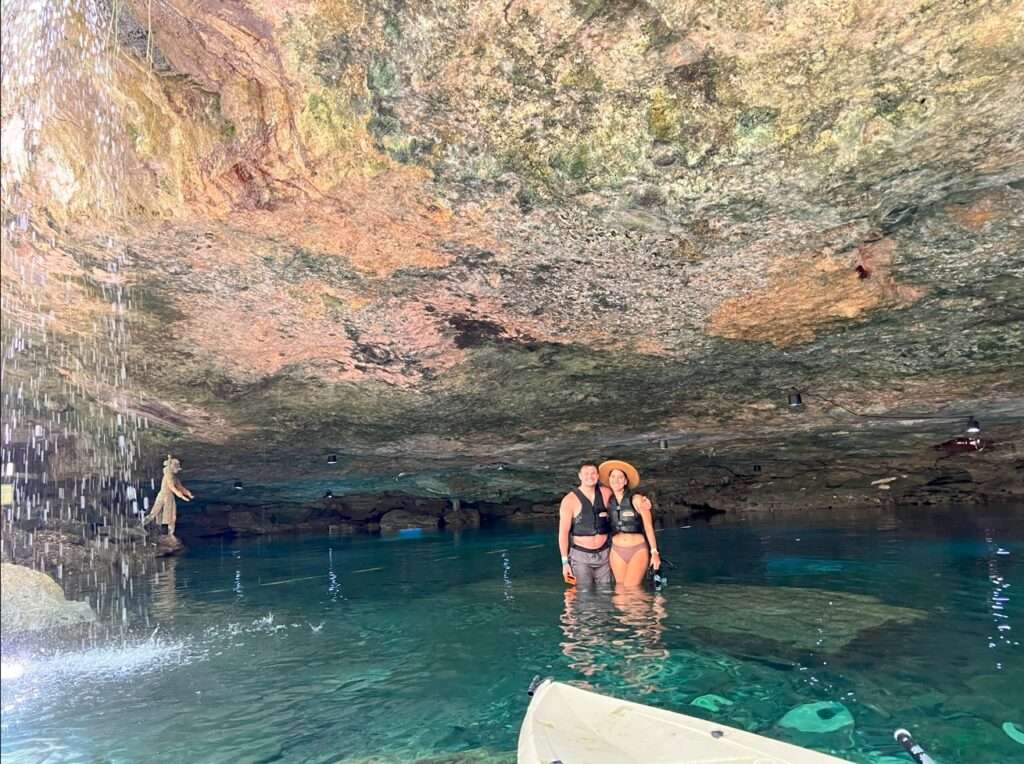Welcome to our blog, where we embark on an exciting journey into the crystal-clear waters of Cancun, Mexico, to witness the awe-inspiring beauty of whale sharks. With their immense size and gentle nature, these gentle giants provide an unforgettable experience for adventure seekers and nature enthusiasts alike. Join us as we dive into the world of these majestic creatures and explore the magic they bring to the turquoise seas of Cancun.
SEVEN FACTS ABOUT WHALE SHARKS
Certainly! Here are some fascinating facts about whale sharks:
1. Gentle Giants
Whale sharks are the largest fish species in the world. They can grow up to an impressive length of around 40 feet (12 meters) or more, and they can weigh up to 20 tons. Despite their massive size, they are known for their calm and gentle nature.
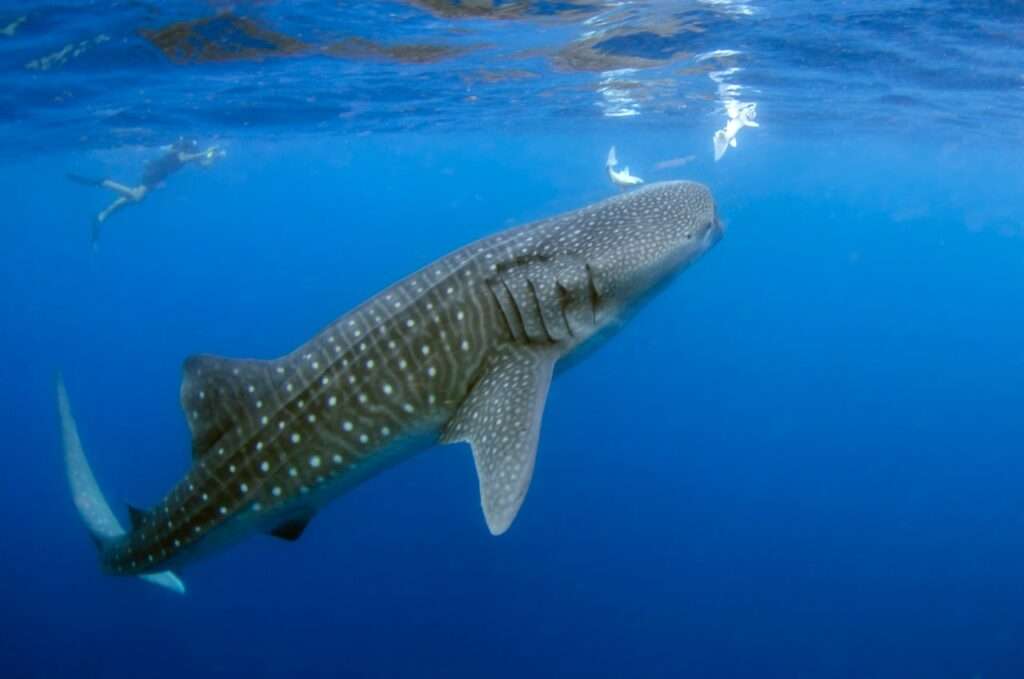
2. Filter Feeders
These majestic creatures are filter feeders, meaning they feed on tiny organisms such as plankton, krill, and small fish. To feed, they swim slowly with their huge mouths open, filtering the water and trapping their prey with their gill rakers while expelling the excess water.
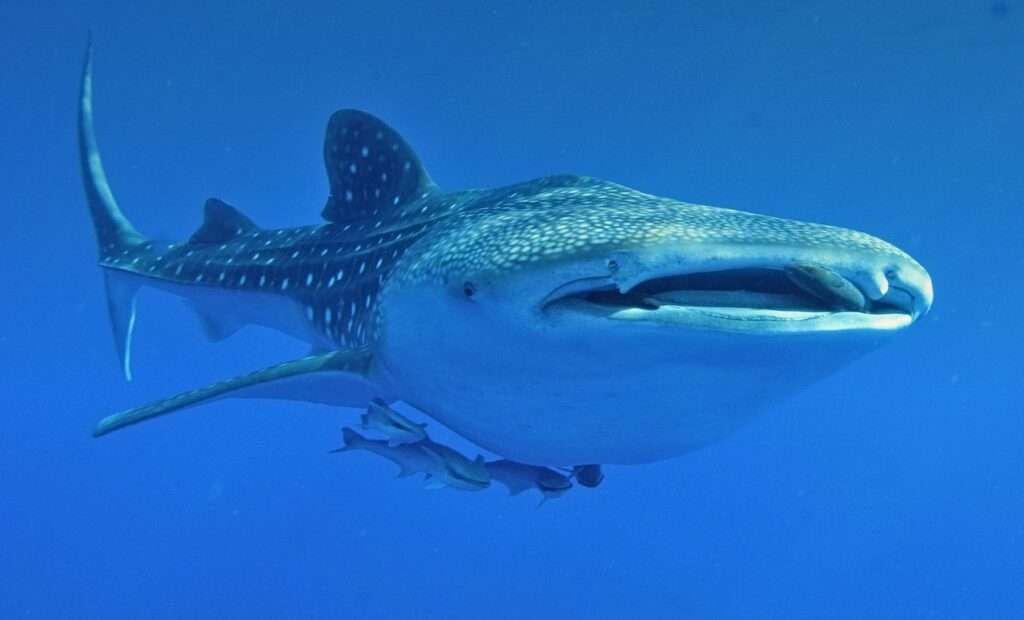
3. Unique Appearance
Whale sharks have distinct physical features. They have a flattened head with a wide, mouth-like structure that can reach up to 5 feet (1.5 meters) wide. Their bodies are covered in grayish-blue skin adorned with pale yellow spots and stripes, creating a beautiful pattern unique to each individual.
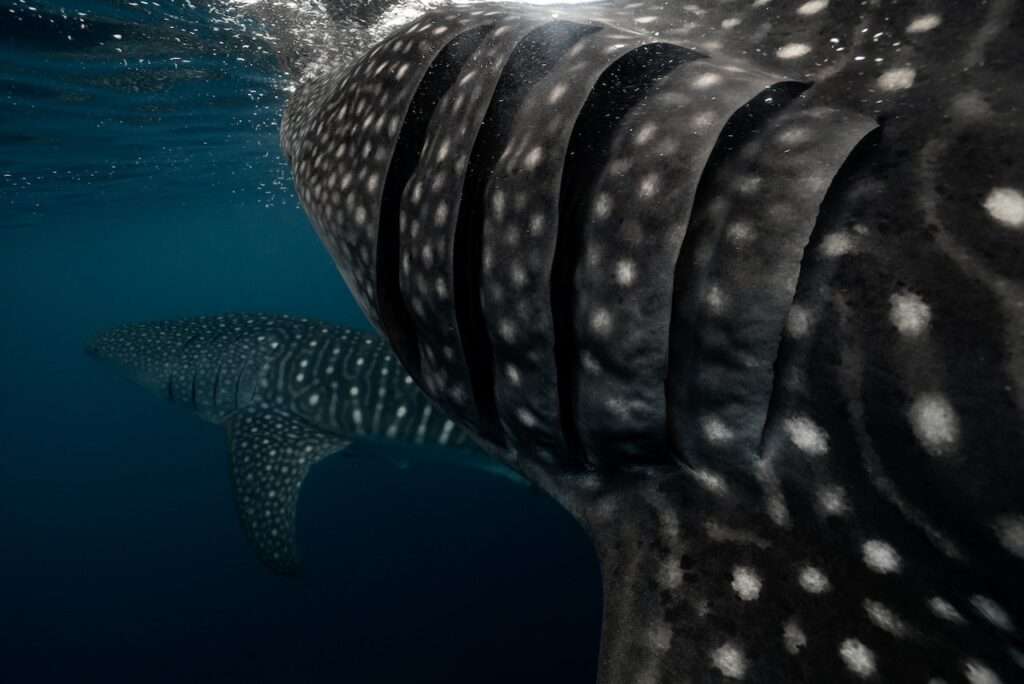
4. Global Distribution
Although they can be found in tropical and warm-temperate oceans worldwide, whale sharks are particularly known to frequent certain regions. Places like the coast of Mexico, including Cancun and the Yucatan Peninsula, the Maldives, Australia’s Ningaloo Reef, and the Philippines are popular spots for encountering these gentle giants.

5. Migratory Patterns
Whale sharks are migratory creatures. They follow seasonal food sources and water temperatures. They often migrate to areas where there is an abundance of plankton and fish, providing them with a reliable food supply. These migrations can span thousands of miles.

6. Long Lifespan
While the exact lifespan of whale sharks is still not fully understood, it is believed that they can live up to 70 years or even longer. Researchers can estimate their age by counting the growth rings found in the vertebrae of deceased individuals.
7. A Global Conservation Concern
Despite being listed as endangered by the International Union for Conservation of Nature (IUCN), whale shark populations face various threats. These include habitat degradation, pollution, vessel collision, and unsustainable fishing practices. Conservation efforts, such as protected marine areas and responsible ecotourism practices, play a crucial role in preserving these magnificent creatures.
TRAVEL GUIDE AND TIPS TO ENHANCE YOUR EXPERIENCE SWIMMING WITH WHALE SHARKS
1. Choose Certified Tour Operators
Opt for whale shark tour operators that have certifications or affiliations with recognized conservation organizations. These operators are more likely to follow responsible guidelines and prioritize the well-being of the whale sharks.
2. Follow Guidelines and Regulations
Pay close attention to the guidelines and regulations provided by the tour operator or local authorities. These guidelines are designed to ensure the safety of both the visitors and the whale sharks. Adhere to rules such as maintaining a safe distance, not touching the animals, and avoiding sudden movements.
3. Use Reef-Safe Sunscreen
When swimming near whale sharks or coral reefs, use reef-safe sunscreen to minimize harmful chemicals that can harm marine life. Look for products that are labeled as “reef-safe” or “ocean-friendly.”
4. Reduce Plastic Waste
Carry a reusable water bottle and avoid single-use plastics during your whale shark tour. Plastic pollution poses a significant threat to marine life, including whale sharks. Dispose of any waste responsibly and participate in beach or underwater clean-up activities if available.
5. Minimize Noise and Disturbance
Keep noise levels low and avoid making sudden or disruptive movements while in the water. Excessive noise and disturbances can stress the whale sharks and disrupt their natural behavior.
6. Respect Their Habitat
Be mindful of the marine environment and avoid touching or standing on coral reefs. Touching or damaging the reefs can cause irreparable harm to the delicate ecosystem that supports whale sharks and other marine life.
7. Support Conservation Efforts
Consider donating to local organizations dedicated to the conservation of whale sharks or participating in volunteer programs that contribute to research and conservation initiatives. Your support can make a significant impact on their long-term survival.
Remember, responsible tourism and conservation practices are crucial for the well-being and preservation of whale sharks and their ecosystems. By following these tips, you can enjoy a meaningful and sustainable experience while contributing to the long-term conservation of these incredible creatures.
ABOUT OUR TOUR
Beautiful Cancun is known for its colorful coral reefs and clear waters. This destination also serves as an ideal sanctuary for whale sharks, the magnificent giants of the sea. They come here every year because the environment is just right for them. The water has lots of nutrients, and there’s plenty of food for them to eat. It’s like a perfect home for these amazing animals.
Encountering a whale shark in the wild is truly an awe-inspiring experience that offers insight into the wonders of the marine world and the importance of conservation.

- Gear up and prepare to dive into an adventure like no other. Snorkel alongside these gentle giants, observing them in their natural habitat. In the video below, we captured the excitement and adrenaline rush of encountering these gentle giants up close. Enjoy their serene movements, capture the essence of their magnificence through your lens, or etch the memories in your heart.
Where To Stay:
We enjoyed staying at an AirBnb near Tulum. Check these out:
Swimming with whale sharks is a once-in-a-lifetime experience that leaves an indelible mark on the hearts and minds of all who encounter these gentle giants. Through this blog, we hope to inspire a deeper appreciation for the beauty of marine life and foster a sense of responsibility in preserving these incredible creatures and their habitat. So, come along and join us with your comments on this thrilling adventure.
